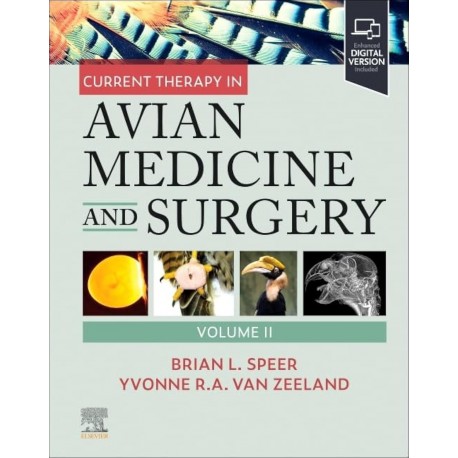Sipariş listesinde ürün yok
Ürün başarıyla alışveriş sepetinize eklendi
Sepetinizde 0 ürün bulunmaktadır. Sepetinizde 1 ürün bulunmaktadır.
Veteriner Hekimlik
- Tıp Kitapları
- Acil Tıp
- Adli Tıp ve kriminoloji
- Aile Hekimliği
- Alerji ve İmmünoloji
- Anatomi
- Anesteziyoloji ve Ağrı
- Biyoloji ve Genetik
- Biyomedikal Mühendisliği
- Biyokimya
- Çocuk Cerrahisi
- Çocuk Sağlığı ve Hastalıkları
- Çocuk ve Ergen Psikiyatrisi
- Dahiliye
- Dermatoloji
- Endokrinoloji
- Farmakoloji
- Fiziksel Tıp ve Rehabilitasyon
- Fizyoterapi, Rehabilitasyon ve Spor Hekimliği
- Fizyoloji
- Gastroenteroloji
- Geleneksel ve Tamamlayıcı Tıp
- Genel Cerrahi
- Geriatri
- Göğüs Hastalıkları
- Kalp Damar Cerrahisi
- Göz Hastalıkları
- Halk Sağlığı
- Hematoloji
- Histoloji ve Embriyoloji
- İnfeksiyon Hastalıkları
- Kadın Hastalıkları ve Doğum
- Kardiyoloji
- Kulak Burun Boğaz Hastalıkları
- Mikrobiyoloji immunoloji
- Nöroşirürji
- Nefroloji
- Nöroloji
- Nükleer Tıp
- Onkoloji
- Ortopedi ve Travmatoloji
- Patoloji
- Plastik Cerrahi
- Sağlıklı Yaşıyoruz
- Spor Hekimliği
- Psikiyatri
- Radyasyon Onkoloji
- Radyoloji
- Romatoloji
- Tıp Tarihi ve Tıp Etiği
- Tıbbı İstatistik Araştırma
- Tıp ve Sağlık Hukuku
- Tıbbi Laboratuvar Deney Bilimi
- USMLE & Board Review
- Üroloji
- Yoğun Bakım
- Göğüs Cerrahisi
- Uyku Tıbbı
- Diş Hekimliği Kitapları
- Eczacılık Kitapları
- Beslenme ve Diyet Kitapları
- Veteriner Hekimlik
- DUS Kitapları
- DUS Akademi Konu Kitapları Serisi
- DUS için Açıklamalı Deneme Sınavları Serisi
- DUS Spot Bilgiler Serisi
- Miadent Konu Kitapları Serisi
- Miadent Soru Kitapları Serisi
- DUS Çıkmış Soru Kitapları
- DUSDATA Şampiyonların Notu
- DUS Review Serisi
- DUSDATAMAX Soru Kitapları Serisi
- DUS Akademi Soru Kitapları Serisi
- Diğer Kitapları Serisi
- TUS Kitapları
- Çıkmış TUS Soru Kitapları
- 41 Deneme Serisi
- MEDOTOMY Serisi
- Tusmer
- Klinisyen Konu Kitapları Serisi
- Optimum Serisi
- Premium Serisi
- PRETUS Deneme Sınavları Serisi
- ProspekTUS Serisi
- Klinisyen Soru Kitapları Serisi
- Tusdata Ders Notları
- Tıbbi İngilizce
- Vaka Soruları Serisi
- Tüm Tus Soruları
- Hızlı Tekrar Serisi
- UTS Serisi
- KAMP ÖZEL NOTLARI
- Meditus Serisi
- YDUS Kitapları
- Hemşirelik ve Ebelik kitapları
- HEMŞİRELİK / halk sağlığı
- HEMŞİRELİK / Hemşirelik Esasları
- HEMŞİRELİK / İç Hastalıkları
- HEMŞİRELİK / Cerrahi Hastalıkları
- HEMŞİRELİK / Kadın hastalıkları ve doğum Ebelik
- HEMŞİRELİK / Ruh Sağlığı ve Hastalıkları
- HEMŞİRELİK / Hemşirelikte Eğitim
- HEMŞİRELİK / Çocuk Sağlığı ve Hastalıkları
- HEMŞİRELİK / Acil tıp hemşireliği
- SAĞLIK BİLİMLERİ
- Çocuk Gelişimi
- Sağlık Yöneticiliği
- Optisyenlik
- Odyoloji
- Saç Bakımı ve Güzellik Hizmetleri
- Anestezi Teknikerliği
- Tıbbi Dökümantasyon ve Sekreterlik
- Tıbbi Laboratuvar Teknisyenliği
- İş Sağlığı ve Güvenliği
- Ergoterapi
- Ağız ve Diş Sağlığı Teknisyenliği
- Dil ve Konuşma Terapisi
- İlk ve Acil Yardım Teknikeri (Paramedik)
- Radyoloji Teknisyenliği
- EĞİTİM BİLİMLERİ
- Değerler Eğitimi
- Eğitim Programları ve Öğretim
- Eğitim Psikolojisi
- Eğitim Yönetimi ve Denetimi
- Eğitimde Drama
- Eğitim Temelleri
- Eğitim Teknolojileri
- Okul Öncesi Eğitim
- Ortaokul Öğretmenliği
- Öğretmenlik Eğitimi Bölümleri
- Ölçme ve Değerlendirme
- Özel Eğitim
- Psikolojik Danışmanlık ve Rehberlik
- Sınıf Öğretmenliği
- Sınıf Yönetimi Etkili Öğretim
- İLETİŞİM
- İŞLETME
- İKTİSAT / EKONOMİ / MALİYE
- MİMARLIK - SANAT
- BİLİM TEKNİK
- MÜHENDİSLİK - TEKNİK
- FEN BİLİMLERİ
- ÇOCUK VE GENÇLİK KİTAPLARI
- BEŞERİ/SOSYAL BİLİMLER
- ÇEVRE ve YER BİLİMLERİ
- GIDA TARIM ve HAYVANCILIK
- BİYOMEDİKAL MÜHENDİSLİĞİ
- SEYAHAT TURİZM
- SOSYAL ÇALIŞMALAR
- SPOR BİLİMLERİ
- YÖNETİM - SİYASET - ULUSLARARASI İLİŞKİLER
- SINAVLAR HAZIRLIK
- ÖNERİLEN ÜRÜNLER
- Çok Satan Romanlar
- E-Kitaplar
- AYBAK
- Kırtasiye
 Daha büyük görüntüle
Daha büyük görüntüle Current Therapy in Avian Medicine and Surgery Volume II
9780323694841
BU KİTAP İÇİN ÖN SİPARİŞ ALINMAKTADIR. TESLİM SÜRESİ 6 - 8 HAFTADIR. BİLGİ ALMAK İÇİN MAĞAZAMIZI ARAYINIZ
8 552,86 TL
6 842,29 TL
-20%
KDV Hariç: 6 842,29 TL
- Yorum Yaz
| Stay up to date with the latest advances in avian medicine! Current Therapy in Avian Medicine and Surgery, Volume II, brings a wealth of new information on the medical care of avian species with practical approaches to diagnosis and therapy of psittacines and other birds. With many of the topics not previously covered in the first volume, the two books are complementary to one another and provide any veterinarian with an interest in avian medicine, whether novice or expert, the latest advances in internal medicine, anesthesia, analgesia, and surgery. Sections dedicated to behavior and welfare, neonatology and pediatrics, conservation, and practice management explore important, but less commonly discussed aspects of avian practice. With contributions from globally recognized experts on avian medicine, this is a must-have resource for anyone seeking to enhance and expand their expertise and skills in avian healthcare, welfare, and conservation. | ||
| Features: | ||
| ||
| Table Of Contents: | ||
Section 1: Advances in Practice Management | ||
| ISBN | 9780323694841 |
| Basım Yılı | 2025 |
| Sayfa Sayısı | 960 |
| Yazar(lar) | Brian Speer, Yvonne R.A. van Zeeland |

